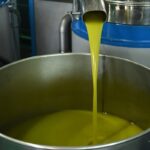
Reports have emerged that the Russian military, which has been at war with Ukraine for over two years, is using chemical weapons banned under international conventions against the Ukrainian army at the frontlines.
Telegraph reported on the 6th (local time) that frontline Ukrainian soldiers are almost daily under attack from small Russian drones dropping incendiary shells and other chemical substances.
According to the report, the Russian military is firing CS gas, a type of tear gas, at the Ukrainian army. CS gas is a substance that should not be used on the battlefield, according to the Chemical Weapons Convention (CWC) signed in 1997. Russia is also a party to the CWC.
Ihor, the commander of a reconnaissance unit of the Ukrainian military stationed in the frontline city of Chasiv Yar in the Donetsk region, told the Telegraph, “One or two gas grenades are being dropped on our frontline trenches every day.”
He explained that a significant number of Ukrainian forces are in hiding, making it difficult for the Russian military to attack with traditional cannons or missiles, “The only way they can successfully attack us is by using gas.”
This type of gas is not lethal, but it induces panic, causing soldiers to flee, Ihor said. After the gas attack startles Ukrainian soldiers out of hiding, the Russian military attacks with traditional weapons.
CS gas is known to cause respiratory distress, mucous membrane irritation, skin rashes, and chemical burns when it comes into contact with the body.
Marc-Michael Blum, former director of the Organization for the Prohibition of Chemical Weapons (OPCW), confirmed that the ammunition fired by the Russian military and recovered from the battlefield was a K-51 grenade filled with tear gas, the Telegraph reported.
Claims have also been made that other chemical gases were dropped.
Rebekah Maciorowski, a Ukrainian combat medic, said that last year, a Russian drone dropped ammunition filled with an unidentified gas that smelled like “burnt almonds” on Ukrainian soldiers in the Donetsk region. This gas was suspected to be cyanide, which was used in World War I.
Cyanide is a toxic substance, also known as prussic acid. However, the Telegraph stated that it could not independently verify this claim.















Most Commented